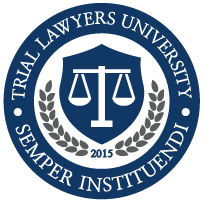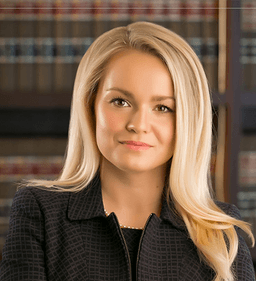Tax & Ethics at Settlement
An extra sentence in the settlement agreement can dramatically increase what a plaintiff keeps. Even in tax-free cases you can save your client from significant taxes – for example, by preserving millions in future medical expenses deductions, or by securing valuable tax subsidies.
This is a presentation for trial lawyers, not financial advisors. How can you issue-spot for tax opportunities (and risks) at settlement? And what steps can you take at engagement to protect you and your client from missing them?
The settlement agreement is your best tax tool. You can force the IRS to bear the burden of proof on audit. You can dramatically reduce the risk of audit. And you can memorialize facts needed to secure tax benefits.
To do so we’ll discuss how to spot potential taxation before signing and flag opportunities to avoid it. We walk through the use of the settlement agreement to effect and protect tax-saving strategies.
We’ll also walk through tax-subsidized and tax-advantaged arrangements. Each “solution” solves a unique problem. What is the “plaintiff double tax”? How can you avoid it? How can you settle while still preserving structured settlement options?
Lastly, we’ll cover the plaintiff firm’s ethical obligations on tax and financial issues. What if you don’t spot these issues? Can you exclude them from your scope of representation? What should you know when referring clients to settlement advisors?
No one expects you to become a tax lawyer. But your team may be in the best position to spot tax opportunities and risks. We’ll walk through what to watch for.
TLU Live HB Agenda
Track 1
Breakfast
7:30am - 9:00am
Hosted by
- 9:00a


 Sach Oliver · Joe Fried Winning the Most Common Tractor Trailer Case in America
Sach Oliver · Joe Fried Winning the Most Common Tractor Trailer Case in America Coffee & Snacks
Hosted by
- 10:15a


 Sach Oliver · Joe Fried Winning the Most Common Tractor Trailer Case in America
Sach Oliver · Joe Fried Winning the Most Common Tractor Trailer Case in America Coffee & Snacks
Hosted by
- 11:30a


 Sach Oliver · Joe Fried Winning the Most Common Tractor Trailer Case in America
Sach Oliver · Joe Fried Winning the Most Common Tractor Trailer Case in America Lunch
Sponsored by
- 2:00p

 Michael CowenGetting Big Justice in Big Rig Cases
Michael CowenGetting Big Justice in Big Rig Cases Coffee & Snacks
Hosted by
- 3:15p

 Joseph CamerlengoLecture
Joseph CamerlengoLecture Coffee & Snacks
Hosted by
- 4:30p


 Randall Sorrels · Dirk Vandever Lecture
Randall Sorrels · Dirk Vandever Lecture
Track 2
Breakfast
7:30am - 9:00am
Hosted by
- 9:00a

 Melissa Scartelli Charting the Path to Verdict: Strategic Decisions in Medical Negligence Trials
Melissa Scartelli Charting the Path to Verdict: Strategic Decisions in Medical Negligence Trials Coffee & Snacks
Hosted by
- 10:15a

 Rahul RavipudiLecture
Rahul RavipudiLecture Coffee & Snacks
Hosted by
- 11:30a

 Brian PanishLecture
Brian PanishLecture Lunch
Sponsored by
- 2:00p


 Ben B. Rubinowitz · Michael Kelly Lecture
Ben B. Rubinowitz · Michael Kelly Lecture Coffee & Snacks
Hosted by
- 3:15p

 Kimball JonesLecture
Kimball JonesLecture Coffee & Snacks
Hosted by
- 4:30p


 Al Foeckler · Brett A. Eckstein Black Hat Justice Opening Statement
Al Foeckler · Brett A. Eckstein Black Hat Justice Opening Statement
Track 3
Breakfast
7:30am - 9:00am
Hosted by
- 9:00a

 Kurt ZanerCreating Drama at Trial – how to tell a story in trial through dramatic theatrical techniques
Kurt ZanerCreating Drama at Trial – how to tell a story in trial through dramatic theatrical techniques Coffee & Snacks
Hosted by
- 10:15a

 John RomanoTactical Storytelling During Cross-Examination of Defense Damages & Causation Experts
John RomanoTactical Storytelling During Cross-Examination of Defense Damages & Causation Experts Coffee & Snacks
Hosted by
- 11:30a

 Sagi ShakedLecture
Sagi ShakedLecture Lunch
Sponsored by
- 2:00p

 Kurt ZanerWriting a Story – Win your case in a page and a half
Kurt ZanerWriting a Story – Win your case in a page and a half Coffee & Snacks
Hosted by
- 3:15p

 Edward CiarimboliFrom the Windshield to the Boardroom: How FedEx’s Camera Systems Prove Control, Knowledge and Responsibility
Edward CiarimboliFrom the Windshield to the Boardroom: How FedEx’s Camera Systems Prove Control, Knowledge and Responsibility Coffee & Snacks
Hosted by
- 4:30p

 TLU ProfessorLecture
TLU ProfessorLecture
Track 4
Breakfast
7:30am - 9:00am
Hosted by
- 9:00a

 Andrew PickettLecture
Andrew PickettLecture Coffee & Snacks
Hosted by
- 10:15a

 Eric CastelblancoSue Your Slumlord: The Ins and Outs of Habitability Law in CA
Eric CastelblancoSue Your Slumlord: The Ins and Outs of Habitability Law in CA Coffee & Snacks
Hosted by
- 11:30a

 Dan AmbroseWitness Prep & Direct Examination
Dan AmbroseWitness Prep & Direct Examination Lunch
Sponsored by
- 2:00p

 Patrick KangHow We Built An Eight-Figure Practice On Just Toxic Mold Litigation.
Patrick KangHow We Built An Eight-Figure Practice On Just Toxic Mold Litigation. Coffee & Snacks
Hosted by
- 3:15p

 Dan AmbroseCross Examination
Dan AmbroseCross Examination Coffee & Snacks
Hosted by
- 4:30p


 Andrew Robb · Brittany Sanders Robb Maximizing Recoverable Damages Before Trial: Framing Your Case for Actual Recoverability
Andrew Robb · Brittany Sanders Robb Maximizing Recoverable Damages Before Trial: Framing Your Case for Actual Recoverability
Track 5
Breakfast
7:30am - 9:00am
Hosted by
- 9:00a

 Orlando De CastroverdeHow To Get A 1.7m Verdict On A Neck Injection Case
Orlando De CastroverdeHow To Get A 1.7m Verdict On A Neck Injection Case Coffee & Snacks
Hosted by
- 10:15a

 George MoschopoulosLecture
George MoschopoulosLecture Coffee & Snacks
Hosted by
- 11:30a


 Al Foeckler · Brett A. Eckstein Black Hat Justice Verdict – A Deep-Dive into a $15 Million Verdict in an Extremely Conservative Venue
Al Foeckler · Brett A. Eckstein Black Hat Justice Verdict – A Deep-Dive into a $15 Million Verdict in an Extremely Conservative Venue Lunch
Sponsored by
- 2:00p

 Michael StephensonLecture
Michael StephensonLecture Coffee & Snacks
Hosted by
- 3:15p

 Alex IvanovLecture
Alex IvanovLecture Coffee & Snacks
Hosted by
- 4:30p

 Sarah HavensLecture
Sarah HavensLecture















































































































